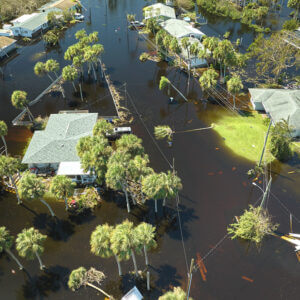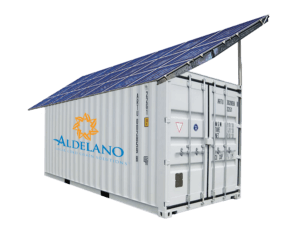Florida, where the old go to rest — their reward after life’s labors — and the young go to play its great amusement parks; where the rich live in Palm Beach and shop on Worth Avenue, and the poor harbor west of I-95; where citrus grows; where the Everglades record natural history from a time past; and where, in Key West, writers and artists find their nirvana of social misfits, drunks, addicts and creators, funky and inspiring.
Florida, where Apollo 11 took us to the moon and where many a person from troubled lands has found refuge.
Florida, where Miami is the jewel in the crown of creativity and, for all Spanish-speaking Latin Americans, their El Dorado.
On the night of Oct. 9, a night of horror and fear, Hurricane Milton delivered a cruel and malevolent blow, made the more so by its accompanying and capricious tornadoes. They were spared nothing, the people and the animals of the Sunshine State, savaged by this terrible storm named, ironically, Milton — a name that invokes the great English poet, who said on going blind, “They also serve who only stand and wait.”
We, in our way, far from the storm, stood and waited, glued to our televisions and computers as we watched reality unfold; death arrived, buildings collapsed, metal flew, trees tumbled and first responders, the ever-ready shock troops of society, got to work. Our time to serve is now with our generosity as the broken mend, having lost all they possess.
Yet, where we saw tragedy, we saw heroism.
All those heroes will never be counted to the last person, but they helped Florida get through its night of horror, just as they helped Florida and North Carolina after Hurricane Helene.
They, the first responders, are many, from the military to the police, the firefighters, the ambulance staff, the nurses and doctors, down to the assistants and porters.
One should add the electricity linemen and women who seek to restore power, de-energize felled lines, and start the vital work of saving lives by getting the lights on so that society can begin the journey back to normalcy in everything from bathing to cooking to making contact with those who have worried in silence — those who wonder if loved ones have survived.
This time around, the electrical workers are particularly stressed. Many have been working night and day since Helene swept through. Now, they must lift the load again.
It is little known — so little celebrated — how the electric utilities are part of an extraordinary network of mutual assistance in which linemen and women board their trucks and drive hundreds, even thousands, of miles to begin the vital work of making fallen lines safe and restoring power. Sometimes, they sleep in their vehicles or share what accommodation can be found.
In Florida and North Carolina, electrical workers will labor in dangerous conditions for weeks until the lights come back on and shattered lives again feel the balm of electrical service.
Raise a toast to the men and women who climb the poles in unfamiliar locales, sometimes warding off wild creatures, from snakes to civet cats, which have sought safety from floodwaters up electric poles.
They will be hampered, as will builders and the army of repair people working for a long time because of a supply-chain crisis. This will be felt in every aspect of the restoration in the storm-ravaged areas, but most acutely so in the electric sector.
Much heavy electrical equipment, like large transformers and generators, is bespoke and made-to-order, often in China. This has presented a continuing crisis for some time, which will gain attention as the rebuilding takes place. Even small transformers for poles are in short supply.
Artisans can work around material shortages with ingenuity, but in the electric power systems, that is a limited option. It can’t be fixed with a compromise.
While bending the knees to first responders, let us not forget the reporters, broadcast and print, who brought us the long night of Milton with disregard for personal safety. We saw the rain-soaked TV reporters bending into the wind lashed by rain, standing knee-deep in rising water, and sharing with us the potential lethality of airborne roofs and tree limbs.
They weren’t alone. Behind every reporter is a chain of people from producers to camera operators to sound engineers to those who install and operate emergency generators. And don’t forget the writers, unseen, but on the front lines of the destruction.
The main compensation is the camaraderie of those who respond, those who march into tragedy to save lives and restore normalcy, and those from the Fourth Estate who rush there to tell us all about it.
Get well, Florida, and immeasurable thanks to those on hand to bind your wounds in your night of need and afterward.


